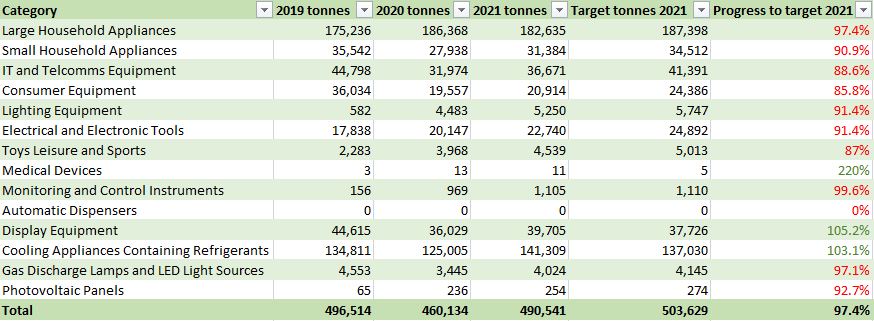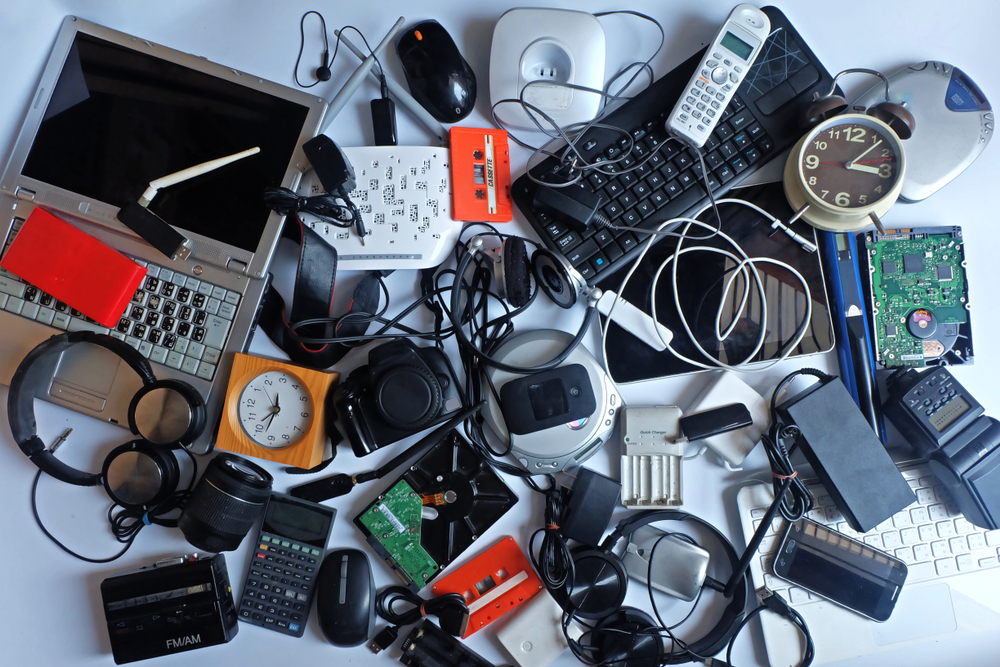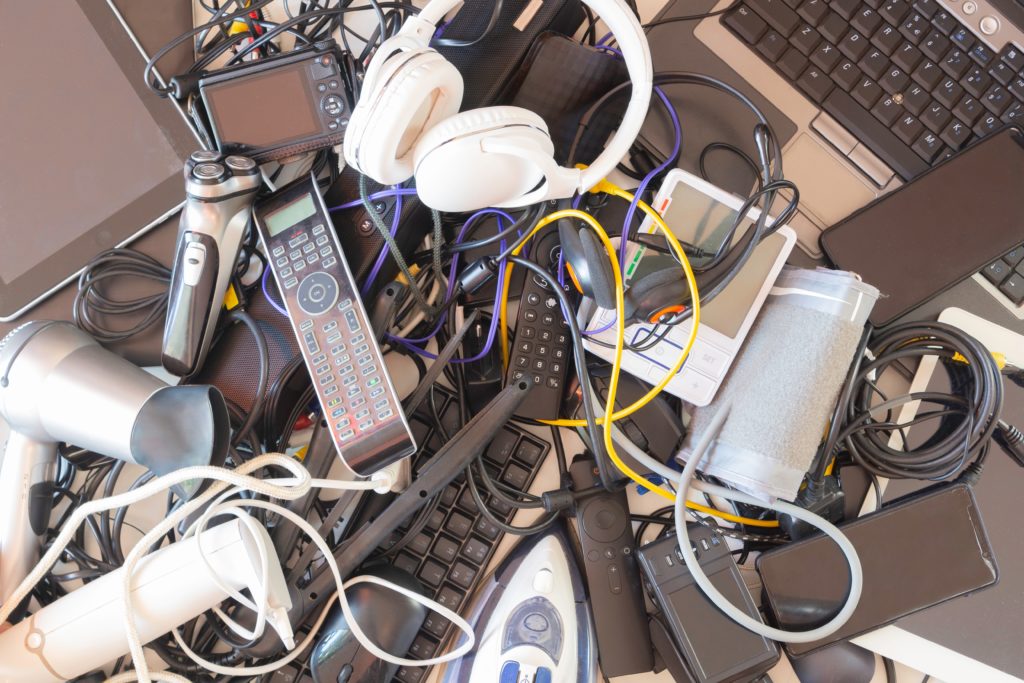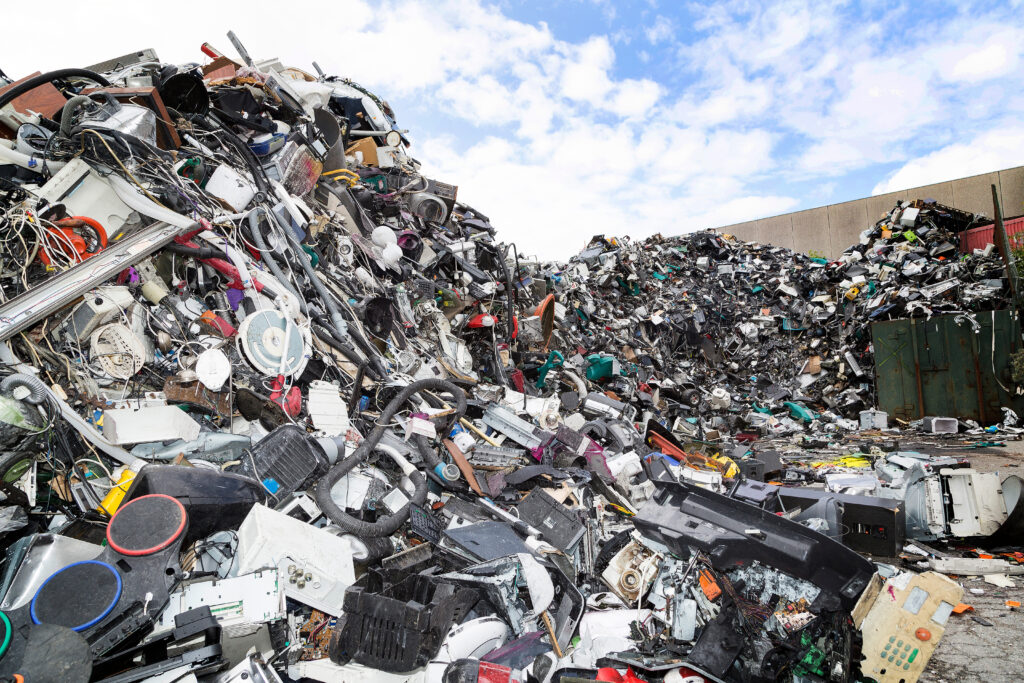Data covering the final quarter of 2021 published by the Environment Agency yesterday (1 March) shows the UK fell short of its overall collection target by just more than 13,000 tonnes.
Producer compliance schemes collected a total of 490,541 tonnes of ‘household’ WEEE, meaning 97.4% of the target total was met.
Three categories of household WEEE – medical devices, display equipment, and cooling appliances containing refrigerants – exceeded their individual targets.
The figures also show the total volume of household WEEE collected by producer compliance schemes in 2021 grew by 7% from 460,134 tonnes in 2020.

Robbie Staniforth, innovation and policy director at compliance scheme Ecosurety, said: “The end of year picture is much more positive than last year’s, and in fact, more positive than anticipated.
“The improved collection figures stand as a testament to the hard work of the thousands of people involved in collecting, sorting, and recycling.
“It is also a consequence of citizens re-engaging with recycling their electricals post-lockdown.”
Compliance fee
Failure to meet targets means that some producer compliance schemes will be required to pay into a ‘compliance fee’ fund to fulfil their recycling obligations for the year.

However, Mr Staniforth said the improved collection figures meant schemes would not be “over-reliant” on the compliance fee.
He added: “The compliance fee fund helps to support recycling initiatives, but it is not a substitute for financing the real recycling that takes place around the country every day.
“We anticipate that Defra will be looking to build on these successes, rather than re-invent the wheel with their anticipated consultation later this year.”
Defra says it will launch its much-anticipated review of the WEEE regulations in June (see letsrecycle.com story).
Small electricals
Matt Manning, group carbon and environment manager at electrical retailer Currys, echoed Mr Staniforth’s sentiments about total collection returning to pre-pandemic levels, but he expressed concern about small electricals.

He said: “The 2021 collection data shows improvement on last year, with volume returning to similar pre-pandemic levels.
“However, small electronics continues to perform below par and is where the biggest call to action is, as these items are mostly commonly hoarded or disposed of incorrectly.”
Mr Manning said Currys was “turbo-charging” its focus on this area during 2022.
He added: “We aim to give tech longer life through services such as repair and trade-in, and if tech isn’t reusable then we want to inform and encourage our customers to recycle responsibly through our in-store and home recycling services, which will ultimately support the UK’s 2022 recycling targets.”
Targets
Louise Grantham, chief executive of compliance scheme REPIC, told letsrecycle.com that setting targets was always “challenging” due to the “complex relationship” between an item of EEE being placed on the market and its final disposal, which does not always result in the disposal of an item of WEEE.

“For example, products can be given away or sold for second or further use, repaired or refurbished, or retained within the home,” she said. “This has been demonstrated well during the Covid-19 pandemic, where the tonnage of EEE placed on the market in 2020 and 2021 increased by 10.2% and 14.7% respectively when compared to 2019, yet WEEE collections fell.
“It is well-documented that consumer spending habits changed during this period, with much focus on home improvements and other home-based activities.”
In May 2021, REPIC commissioned a nationally representative consumer survey exploring EEE purchased and disposed of by consumers in the previous year.
REPIC found that 10% of the people surveyed had acquired a large fridge freezer, but only 5% had disposed of one.
A similar ratio was reported for coffee machines – 6% of those surveyed had acquired one, 3% had disposed of one – and dishwashers – 4% and 2%.












Subscribe for free